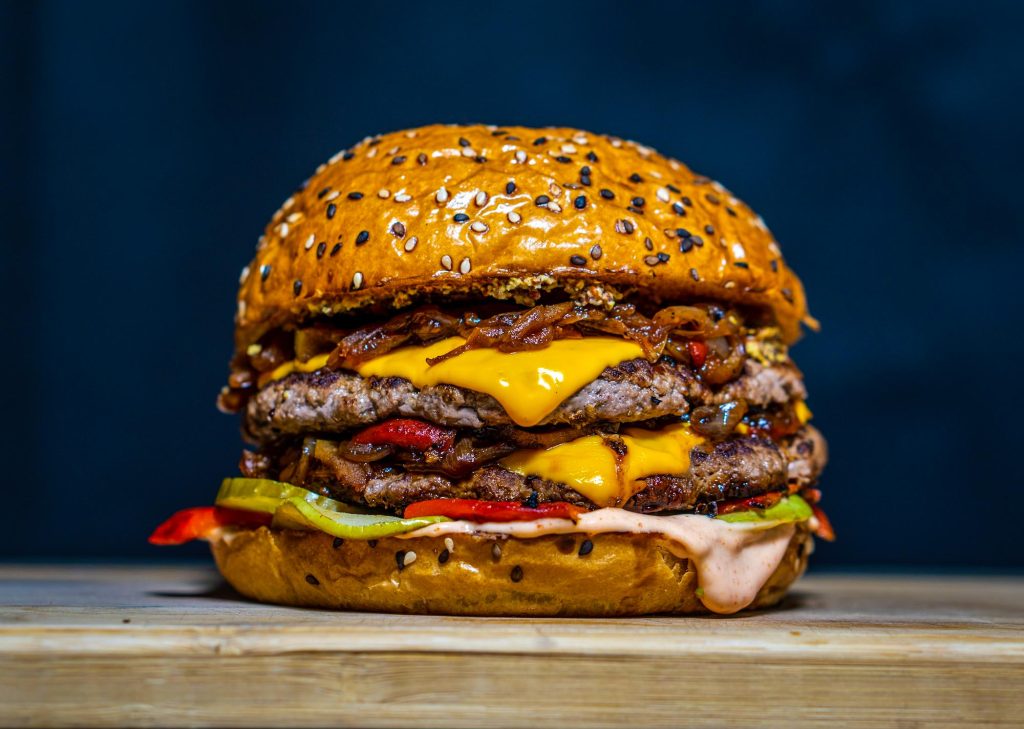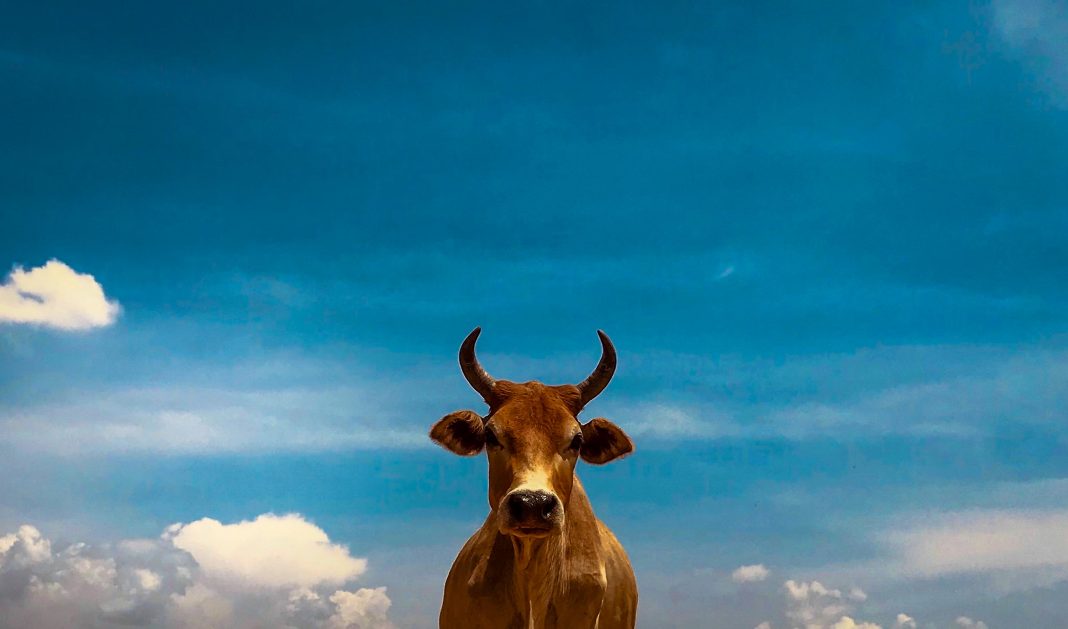There’s a lot to be said for going vegan. That must be why they drone on about it all the time! Like other drones, don’t you wish they would just fly off?
But let’s give our nutrient-deficient cousins a break. Whether it’s for dietary or ethical reasons, there’s a lot to be admired about a meat-free eat.
For one thing, being stuck in a lift with one is probably no worse than with someone subscribing to a protein-heavy diet – one inevitable eye-stinging gas leak is very much like another. But at least after a few hours the vegan won’t look at you as if you’re a giant steak like a hungry cartoon dog.
There are genuine benefits – depending on who you believe. According to animal welfare advocates PETA, a vegan diet can be effective at improving mood, preventing disease (diabetes, heart problems, cancer), and giving our skin a healthy, glossy shine (or is that dog food?). No doubt this is based on truth but it’s an interesting use of the word ‘can’. The BBC writes of similar advantages but they air even more on the side of caution with ‘may’ instead.
As a writer, I’m familiar with this trick: as long as it’s backed up by plenty of independent research, claim it with confidence but stop short of being too committal – just in case. There’s a difference between definitely lending you fifty quid and saying “I ‘may’ do… remind me tomorrow”.
Chewing the Cud
There’s an ongoing argument as to whether homo sapiens are natural meat eaters. Frank Dixon’s claim that “[a]s intelligent, higher life forms, humans can vary our behaviour and diets” is a little simplistic. Just because one fathoms Pythagoras’ theorem doesn’t gift me with the mind-over-matter power to digest some scrummy poison ivy unharmed. But equally, just because we have evolved with teeth suited to tear at flesh as well as grind veggies, doesn’t mean we have to eat so much meat.
Sustainability concerns are valid. To get meat, we need animals (until lab-grown alternatives are mainstreamed). Animals need somewhere to live. Even the poor blighters stuck in cramped pens and cages, never to see the light of day or a blade of fresh grass take up some room. And the more animal products we eat, the more land we dedicate – often cutting down pristine forest to make space for fields and barns for them to live in or to grow the food they eat.
Sounds like its industrialised farming that’s to blame for these evils. So why is the argument against eating meat always aimed at cows?
Difficult Facts to Stomach
Farming accounts for almost 15% of all greenhouse gas emissions originating from human activities. Included in this is bovine burps, containing methane, which is around 25 times worse for climate warming than CO2.
And it seems that even the highest-environmental-impact cases (e.g. those that have larger carbon footprints, possibly because of transporting animals or importing feed from overseas) of poultry and dairy products are little or no worse than the lowest-impact beef. So technically, we’re automatically climate activists for swapping burgers for nuggets!
But like the vegans stuck in that lift, emissions are not the only problem!
Farmed meat, per kilo, requires some of the largest quantities of water, too. Although not as much as coffee, and people are strangely quiet about that.

Don’t Have a Cow, Man!
My problem with all this though is the expectation that we should all change dietary habits to save the planet.
With fear of sounding like a scratched record (and not in the cool Beastie Boys sense) why should we as individuals change our habits when governments are still backing Big Industry fossil fuel extraction?
And what are the chances of us all buying into it anyway? Broadly speaking, humans don’t act in their own best interests. We’re seeing this with the resistance to low-emission zones in cities throughout Europe. We’d rather choke than give up the chance to sit in traffic in our own cars.
I enjoy meat. Yeah, I said it! And like die-hard drivers, I resent the pressure to give up something I like to make the minutest of difference to a massive global problem. We’re not talking flap-of-a-butterfly-wing change here, just drop-in-the-ocean insignificance.
It would be different if we all turned vegetarian, of course. That would make a dent in the problem. And suppliers of supplements would have a field day as we lethargically scramble to buy up a vit-12 boost.
The Alternative Has to Be Better
Very little about this is an attractive prospect. If we’re really going to persuade people, it needs to be not with requests but by giving them better alternatives.
Meat-free products that rival meat are readily available in supermarkets these days. In Graz, like many other open-minded cities, we see dedicated (and popular) vegan restaurants emerging. They’re all fine, but mostly they’re trying to substitute meat.
“It tastes just like the real thing,” claim people who have not eaten carcass for decades. It doesn’t but it is just as expensive. I’ll take the real deal, thanks.

What if they served up something new instead; a delicious morsel that was unlike anything we meat-eaters have gobbled before? Give us an itch that only plant-based grub can scratch. Then you’d have my attention.
It isn’t that I’m anti-vegan or pro-meat. I’d relish the chance to not chow down on our furry and feathered friends. The point is that those of us who live in a free and democratic world are used to making our own lifestyle choices, and most of us will choose the cheapest, most attractive, and convenient (and tastiest!) options over doing what we think is right any time.
So rather than trying to convince me about how bad beef is for the environment (or me), cook me up something I can’t resist. Like bacon. But green.
Don’t seek to change our minds. Manufacture it so that the better choice is easier to make.


